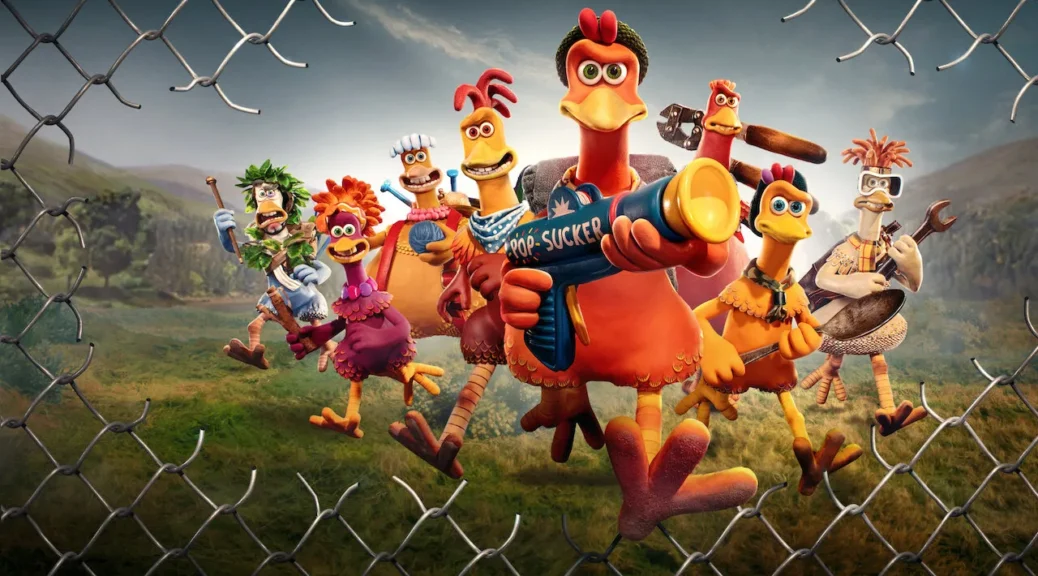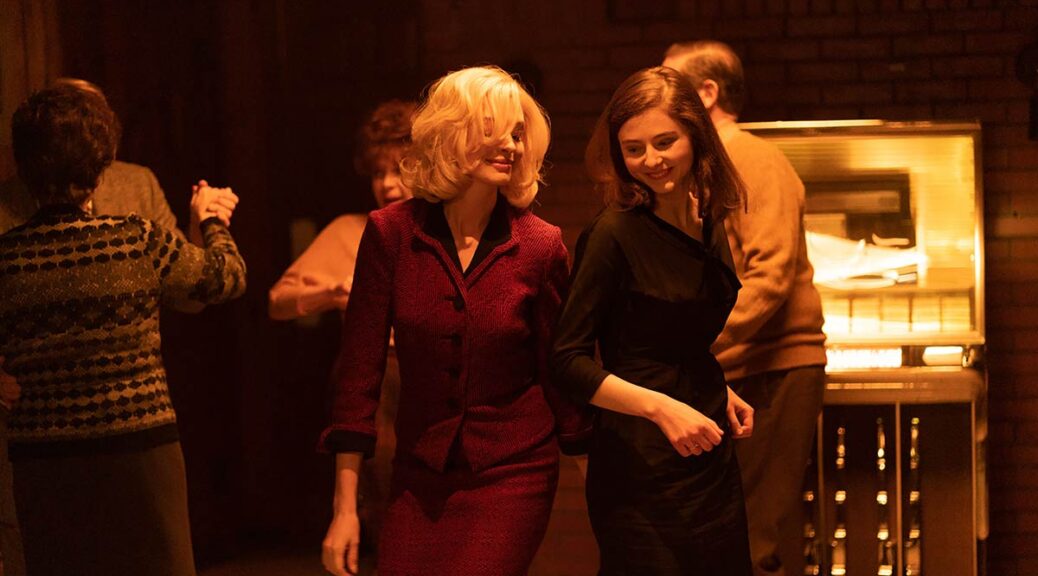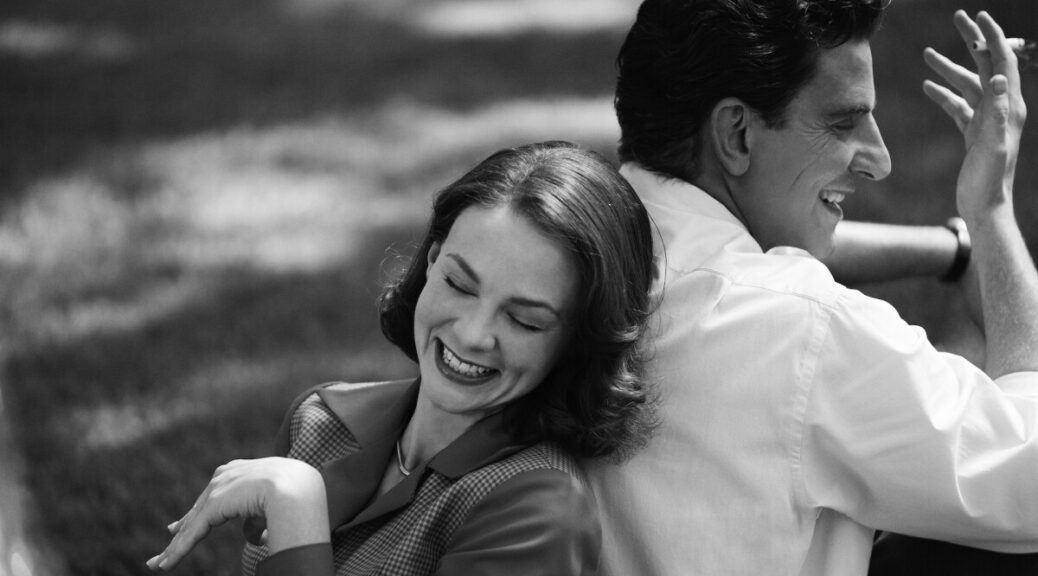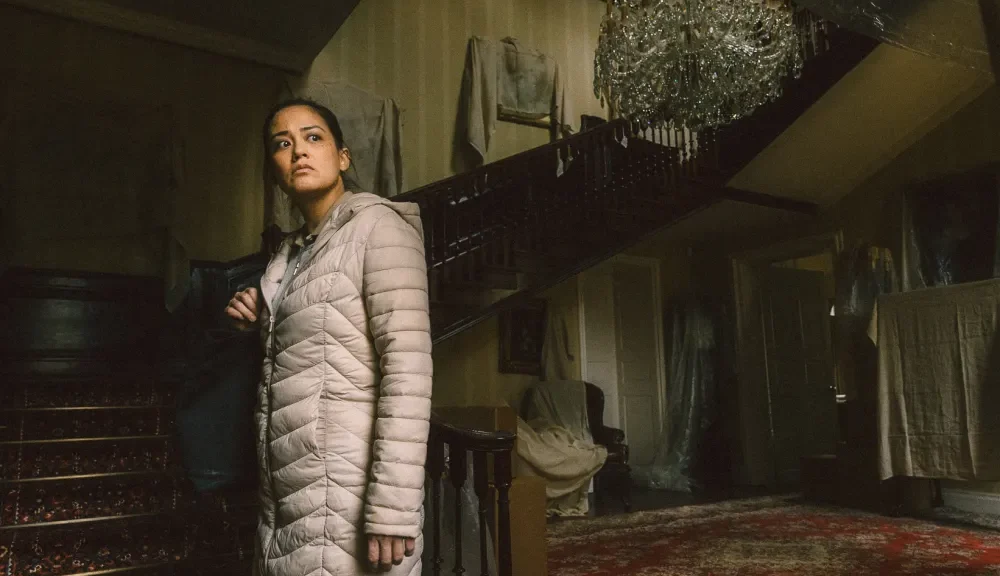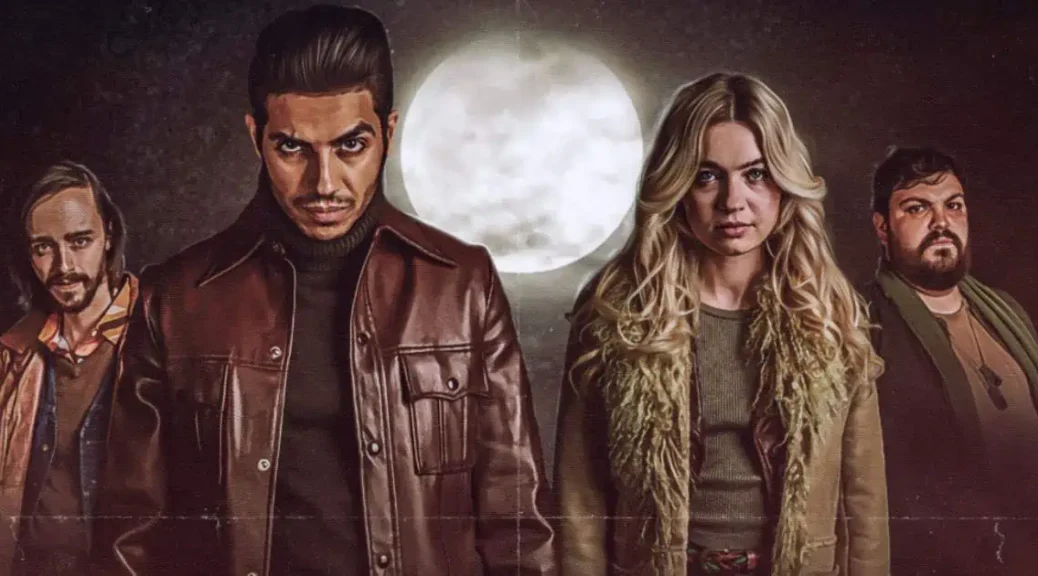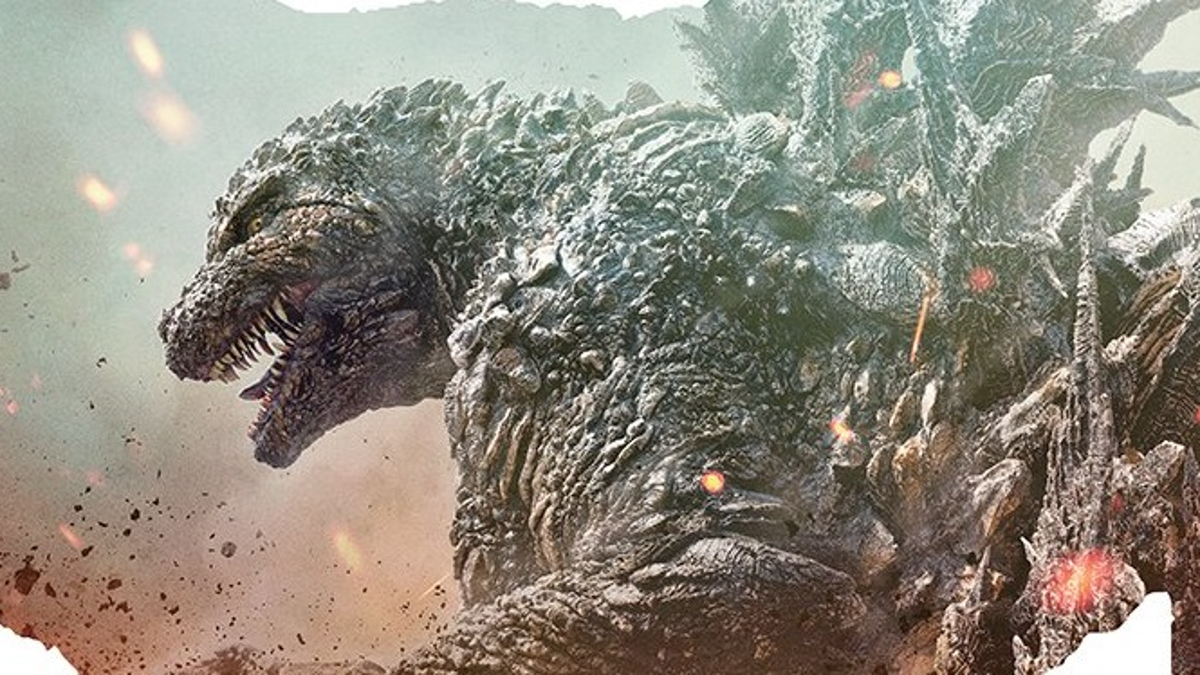Chicken Run: Dawn of the Nugget
by Hope Madden
It has been 23 years since Aardman animation briefly abandoned its cheese-loving besties Wallace & Gromit in favor of a prison break caper. Chicken Run saw one plucky hen named Ginger – inspired by Rocky the Rooster’s tall tales of being able to fly – organize a leave-no-chicken-behind escape mission from Tweedy’s Farm.
Chick Run: Dawn of the Nugget finds Ginger (voiced this go-round by Thandiwe Newton) and Rocky (now Zachary Levi) some time later (though certainly not 23 years later) living in chicken paradise with their friends and their brand-new chick, Molly (Bella Ramsey). But motherhood has turned Ginger from a courageous leader to a, well, chicken. Protective and worried about little Molly, Ginger encourages the flock to hide when they see trucks hauling chickens to a high-tech factory that will turn them into nuggets.
Ginger’s attitude changes once Molly’s in jeopardy, and the whole flock rallies to save the strong-willed little chick and the day.
It may be a lot to expect viewers to recognize some of the callbacks to the original, in that the target audience for this film was born about 15 years after Chicken Run was released. Adults may notice some absent voices but are more likely to sense the absence of Nick Park.
Park co-wrote, directed, and animated most of the early Ardman masterpieces. Like the Muppets without Jim Henson, Aardman just isn’t Aardman without Park. Sam Fell directs a script by Karey Kirkpatrick, John O’Farrell (both of whom worked on the original) and Rachel Tunnard. The visuals are pretty and nearly as engaging as you expect from Ardman, but everything – including the story, dialog and gags – feels a bit standard, a bit bland.
Newton and Levi offer relatively dull performances. On the other hand, Ramsey’s a delight and the vocal ensemble – Imelda Staunton, David Gradley, Romesh Ranganathan, Daniel Mays, Jane Horrocks, Josie Sedgwick-Davies and Miranda Richardson – elevate and energize the otherwise vanilla script.
There’s nothing terribly wrong about Chicken Run: Dawn of the Nugget. But when your animation studio sets the bar so high, “nothing terribly wrong” is quite a disappointment.
